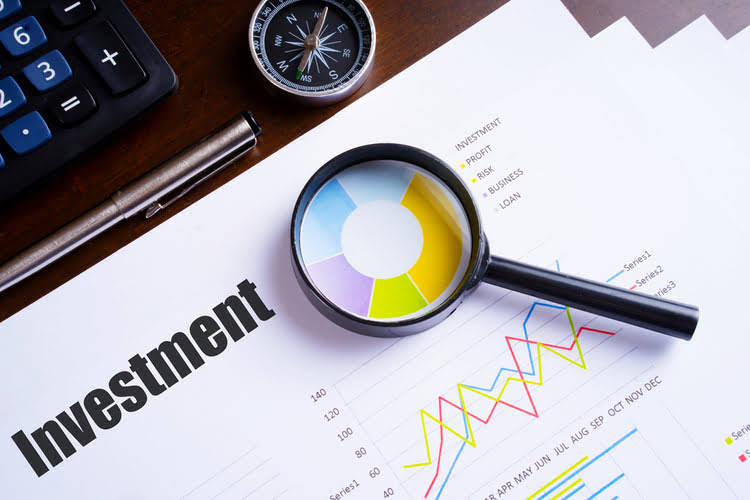
If so, the cost of the parts and labor used in the repairs is added to the cost of the car. After that, the car might be sitting in inventory for an extended period of time. If so, the accountant may have to write down its book value to the lower of its cost or its appraised wholesale value. In this case, the cost of the vehicle is its purchase price, plus the cost of any upgrades made to it, plus the auction car dealership accounting fee to acquire it, plus any travel expenditures incurred while acquiring it. And as part of a sale, the salesperson might convince a customer to buy an extended warranty.
Reconciliations and Effective Schedules

When one person has total control over the books, they may be tempted to pocket a few checks or skim some money off the top. Cami is an Audit Senior Manager at Brown Plus with 10 years of public accounting experience. Cami specializes in providing audit and review services to various industries, including construction, manufacturing, wholesalers, auto dealers and other closely held businesses. A dealership might decide to provide parts or service to a customer for free, to keep the customer happy. This usually happens when a customer complains about service work or the quality of the parts purchased from the dealership. The dealership has no expectation of billing the manufacturer for the costs incurred.

Managing Floor Plan Financing
Accounting practices in this industry are uniquely complex due to the high value of inventory, diverse revenue streams, and intricate financing arrangements. When it comes to running a successful automotive or commercial truck dealership, accounting is a critical component that can make or break your business. From managing cash flow to tracking inventory, there are various accounting processes that must be Law Firm Accounts Receivable Management executed efficiently to ensure your dealership’s financial stability. Periodically, it’s important to evaluate your accounting processes and see if there are any practices that can be revamped to work more efficiently. Bookkeeping and accounting play crucial roles in ensuring the operational efficiency and financial prosperity of car dealerships in the USA.
Accounting Software That Will Revolutionize Your Auto Dealership

For example, the person responsible for handling cash receipts should not be the same person who records transactions in the accounting system. Optimize your car dealership’s financial health with expert accounting practices, from inventory management to revenue recognition and market trend analysis. Car dealerships must adeptly manage the financials surrounding new and used vehicle sales and service income. Dealerships must comply with various laws and regulations, such as online bookkeeping tax laws and industry-specific regulations. Consistent financial reporting ensures that the dealership’s financial statements are in line with these requirements, reducing the risk of penalties and legal issues.
- Payroll in car dealerships involves managing salaries, commissions, and bonuses for a diverse staff, from sales personnel and parts clerks to service technicians.
- These cars come out of the regular dealership inventory and are recognized as fixed assets, which means that they have to be depreciated.
- One of the key considerations in dealership accounting is the choice between accrual and cash accounting methods.
- In the world of auto sales, managing your finances with the finesse of a finely-tuned sports car is not just an option.
- It could shine a light on processes that are working (and those that aren’t) and allow you to tweak your dealership’s spending in a positive way.
Revenue Recognition in Car Sales
- She works closely with our clients to establish and perpetuate meaningful relationships and is driven by helping organizations reach their financial goals.
- Technology simplifies the procedure, saving you time and money while enabling better monitoring of inventory.
- This can include filling the tank with gas, detailing labor, detailing supplies consumed, safety inspection labor, and even the cost to remove accessories that the buyer doesn’t want.
- Unfortunately, instances of internal fraud can occur, where employees may attempt to manipulate financial records or misappropriate funds.
- The LCM is especially useful when valuing inventory that can quickly lose value.
- In essence, reconciliation in auto dealerships involves the meticulous comparison and verification of various financial documents and records to ensure consistency and accuracy.
My experience with FAS CPA & Consultants has been incredible, their professionalism is impeccable. ⇒ When individual items fall below their recorded cost, the year-end inventory is reduced. ⇒ Loss of the ability to shift the weight of future tax liabilities and the ability to open cash-flow channels. ⇒ Unpredictable supply and demand require tight inventory controls to manage tied-up and available working capital efficiently. During the consolidation, all redundant employees can be reassigned or eliminated.

What Are the Critical Tax Considerations for Auto Dealerships?
IPIC will often reduce the error margin for inflation calculations because it calculates inflation using the inventory, resulting in lower deductions. Therefore, no month-end should exclude a review of the entire trial balance showing every general ledger account balance. Implementing robust inventory management systems is essential for tracking vehicles, parts, and accessories accurately. Make sure every item is logged correctly from the moment it arrives until it’s sold. Car dealerships face several compliance challenges, including those related to sales tax, consumer finance laws, and vehicle registration. Failure to comply can result in significant penalties and damage to the dealership’s reputation.
Subscribe to Taxfyle
- Accurate record-keeping is vital to managing the complex tax landscape of the automotive industry.
- In a car dealership, several departments work together to keep things running smoothly.
- This highlights the significance of robust accounting practices in ensuring profitability and compliance for dealerships.
- Regular meetings and strategy sessions can help identify potential issues before they become problematic and allow the dealership to plan for future tax-related challenges.
- In this article, unravel auto dealer accounting and discover strategies that could rev up your dealership’s financial performance.
- The process of handling trade-ins and valuations requires a blend of market knowledge, appraisal skills, and customer relations.
- By analyzing historical sales data, market trends, and even local economic indicators, dealerships can make informed decisions about which vehicles to stock and in what quantities.
⇒ Since a centralized office will prevent duplication of personnel at various dealerships, it will likely employ fewer people. Lower expenditure will result in better wages and improved skills at the central office. ⇒ Follow every general ledger account from the trial balance to the dealer financial statements. Effective tax planning is integral for minimizing tax liabilities and optimizing cash flow. By planning ahead, you can take advantage of tax-saving opportunities and avoid last-minute scrambles. Get $30 off your tax filing job today and access an affordable, licensed Tax Professional.
Leave a Reply